We need to talk about the IDF
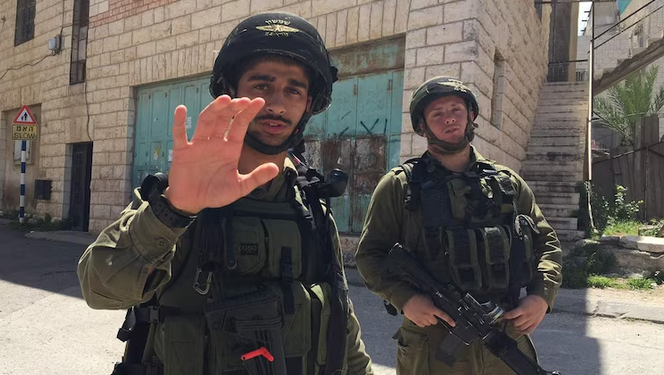
Recently, the punk duo Bob Vylan exposed the BBC’s reluctance to confront uncomfortable truths about state violence and occupation. Their blunt refusal to look away from injustice is a call echoed by many tired of mainstream media sanitising complex and painful realities. One such reality demanding urgent attention is the Israel Defense Forces (IDF): an institution far more complicated, problematic, and internationally entangled than popular narratives would have you believe.
The furore about the Glastonbury performance from the establishment, the media and the so called Chief Fucking Rabbi and the blanket silence about the atrocities only demonstrates that the whole lot are either complicit in a genocide or that wrapped up in the Zionist thing that they simply cannot see the horror playing out in front of their eyes and are quite simply tone deaf. Deaf! Deaf to the IDF.
From Terrorism to State Army:
The IDF’s roots run deep into the violent insurgency against the British Mandate in Palestine. Before Israel’s birth in 1948, Jewish paramilitary groups like the Haganah, the Irgun, and the Lehi (Stern Gang) waged a campaign of terror: bombings, assassinations, and attacks targeting British officials and Palestinian civilians.
The infamous King David Hotel bombing in 1946, which killed 91 people, is just one example of their brutal tactics. These groups were not defenders in the traditional sense, they were insurgents using terror to drive colonial powers out and establish a settler-colonial state. When Israel was declared, these militias merged to form the IDF, carrying forward a legacy of militarism aimed at suppressing the indigenous Palestinian population and expanding territorial control.
And this isn't ancient history. Let's not forget that Bibi honoured the terrorists who were involved in the King David Hotel bombing: an attack that killed civilians, British officials, and hotel staff. In 2006, Benjamin Netanyahu attended a ceremony commemorating the Irgun fighters who carried out the bombing, describing them as patriots. This act of glorifying political violence, carried out against civilians and under the banner of nationalist extremism, reveals the staggering hypocrisy at the heart of Israeli state discourse. When Palestinians resist occupation, they're labelled terrorists; when Zionist militias murdered and bombed to advance their goals, they’re celebrated with plaques and Prime Ministerial tributes.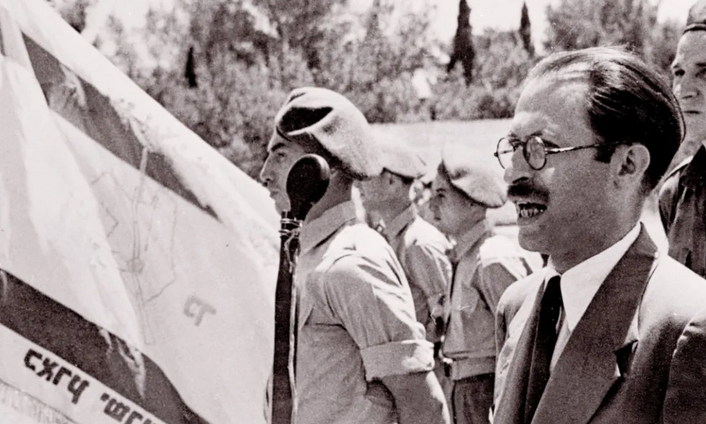
Not Just a National Army: The IDF’s International Reach
The IDF is often described as a conscripted national force, but it operates as much more than that. It functions as the military backbone of a settler-colonial state with strong international ties. Foreign volunteers, drawn by ideology or religion, have long joined the IDF, making it an international brigade of sorts. British citizens are among these volunteers. Some have served in Gaza during some of its deadliest military campaigns, participating in operations condemned by many human rights organisations for war crimes and violations of international law. This reality shatters the neat narrative of a purely national defence force and exposes a transnational network perpetuating occupation and violence.
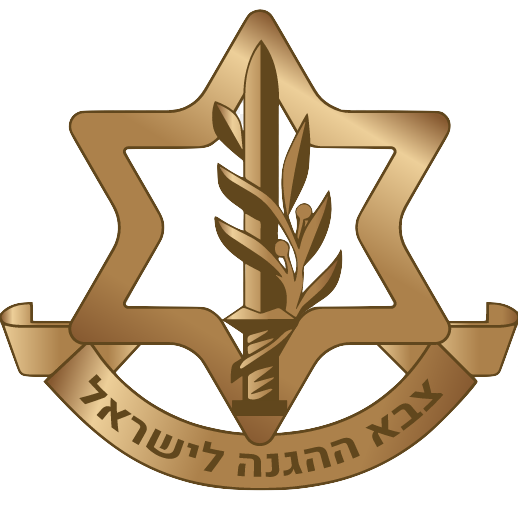
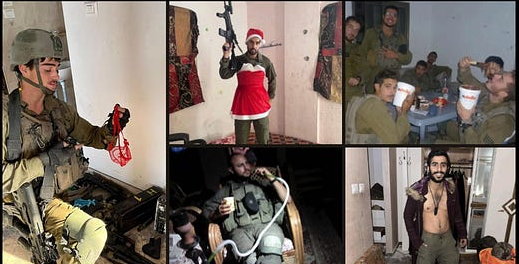
Trophies of war: The IDF with dead women's personal possessions - classy
The Israeli Volunteer Movement and Sar El
Beyond formal enlistment in combat roles, there is also a large, organised volunteer movement that supports the IDF through non-combat roles, most notably Sar El, an Israeli Defence Forces volunteer program established in 1983. Sar El invites Jews and non-Jews from around the world to volunteer for short-term service in logistics and support units, such as packing medical supplies, maintaining equipment, and performing base maintenance. While Sar El volunteers do not engage directly in combat, their work supports the IDF’s operational capacity, including military campaigns in occupied territories. Many international volunteers join Sar El as a gateway to connect with Israel and show solidarity, often driven by Zionist ideology or a desire to contribute to what they see as a defensive cause. This volunteer infrastructure plays a significant role in bolstering the IDF’s reach and sustaining its military occupation, extending Israeli influence far beyond its borders through international networks of political and ideological support.
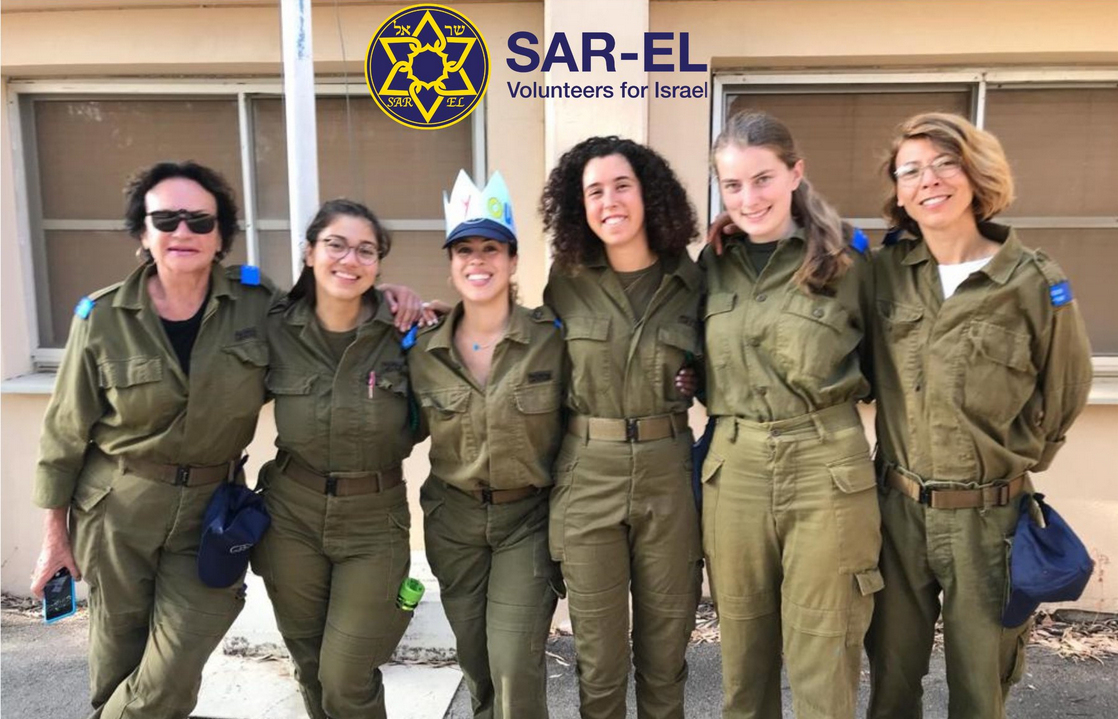
Sar-El: The International volunteers for Israeli military
British Involvement in the IDF and Sar El: Cases and Controversies
British nationals have been involved with the IDF in multiple ways: ranging from formal enlistment in combat roles to participation in support programs like Sar El. Despite the controversy, many Britons have traveled to Israel to volunteer, motivated by a mix of ideological commitment, religious belief, or a desire to support what they view as a just cause.
One notable case involved Kyle Ellicott, a British citizen who openly served as an IDF combatant in Gaza during the 2014 assault known as Operation Protective Edge. Ellicott gave interviews describing his experience fighting alongside Israeli soldiers in heavily populated civilian areas. His presence raised questions about the legality of British citizens fighting in foreign conflicts, yet there was no official investigation or prosecution by UK authorities.
Similarly, Thomas Keenan, a former British soldier, reportedly volunteered for the IDF and took part in operations in Gaza. Keenan’s involvement, like others’, remains largely unexamined by law enforcement, despite international condemnation of the military actions he was part of. On the non-combat side, Sar El has attracted numerous British volunteers who travel to Israel for short-term logistical support. While these volunteers do not engage in frontline combat, their contributions help maintain the IDF’s operational readiness. In 2016, a BBC investigation uncovered several British participants in Sar El who expressed strong ideological support for Israeli policies, further entwining UK citizens with the military apparatus of occupation. Media coverage of these individuals is sparse, and official responses from British authorities are near absent.
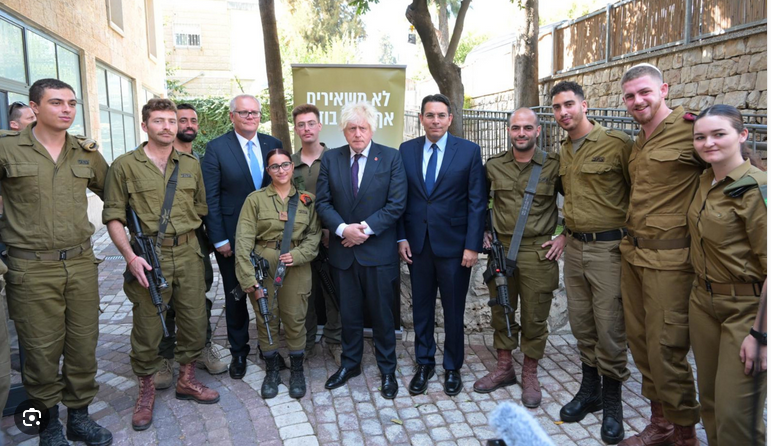
British members of the IDF with Boris Johnson
A Hypocrisy in British Law: Double Standards on Foreign Fighters
This glaring absence of oversight highlights a systemic failure to apply justice equally. While volunteers fighting alongside Ukraine are monitored, investigated, and sometimes prosecuted, those serving in the IDF evade scrutiny. This brings us to a glaring hypocrisy in UK law and policy. When British citizens sought to join the Ukrainian armed forces, the former Tory government made it clear that serving in a foreign military without permission is illegal, punishable under the Foreign Enlistment Act 1870 and other legislation. Volunteers were warned of prosecution for risking Britain’s neutrality. Yet, when British nationals enlist in the IDF and serve in operations widely condemned for civilian casualties and breaches of international law, there is no equivalent enforcement. No warnings, no police investigations, no legal consequences. This double standard is not accidental. It reflects the UK’s political priorities and alliances, tacitly endorsing the Israeli military while criminalising other foreign fighters. It exposes how British foreign policy is selective, applying the rule of law unevenly depending on geopolitical convenience.
British citizens serving in the IDF
Context Matters: “Death to the IDF” and the Charge of Anti-Semitism
It’s easy for slogans like “Death to the IDF” to sound provocative, harsh, even incendiary. But equally it is lazy to dismiss such statements without context is to miss the point entirely. The IDF is not just a national army defending a country’s borders. It is a multi-national force, bolstered by volunteers and support programs like Sar El from around the globe, including Britain, the US, and many other countries. It acts as an instrument of settler-colonial occupation, often implicated in serious violations of international law. When critics chant “Death to the IDF,” they target a military institution, not a religion or ethnicity. This distinction matters because it separates legitimate opposition to state violence and occupation from bigotry. Criticising the IDF, its actions, its policies and its structure is not anti-Semitic. It is a legitimate political position against militarism and oppression.
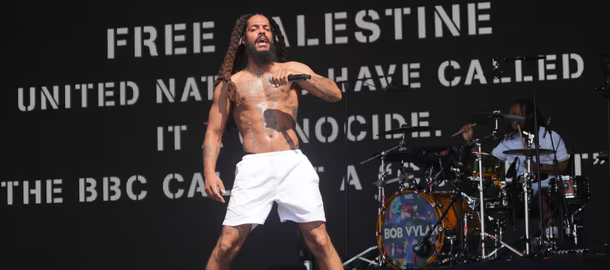
Unfortunately, attempts to conflate anti-Zionism or criticism of Israeli military actions with anti-Semitism are often used to silence debate and stifle dissent. This tactic dangerously undermines free speech and obstructs meaningful engagement with the realities of the Israeli-Palestinian conflict. Understanding the IDF as a multi-national military force, supported by volunteers worldwide, including many British nationals, challenges simplistic narratives. It demands that we look deeper into who participates in its campaigns and why rather than falling back on slogans or accusations that obscure the core issues of justice and human rights.
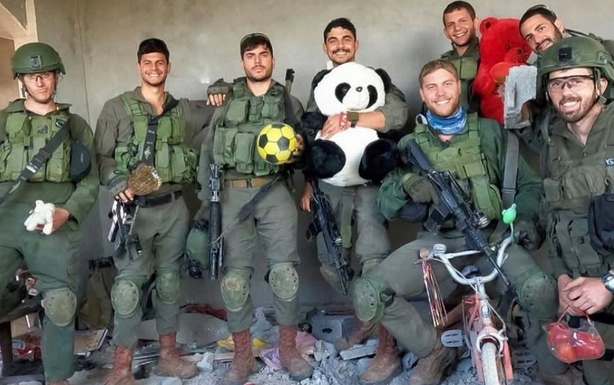
Trophies of war: the toys stolen from dead Palestinian children
No Accountability, No Oversight: The Danger of Silence
The IDF are out of control. They have long been criticised for their consistent use of excessive force, particularly in densely populated civilian areas where the resulting collateral damage is both foreseeable and devastating. Whether conducting airstrikes in Gaza or enforcing military operations in the West Bank, the IDF often deploys overwhelming firepower under the clearly bullshit guise of self-defence, routinely flattening entire neighbourhoods, schools, and hospitals in pursuit of a handful of suspected militants. This disproportionate response has resulted in the deaths of thousands of civilians, including women and children, drawing repeated condemnation from human rights organisations, yet little has changed in operational doctrine. The pattern is clear: the IDF's rules of engagement tolerate, if not actively encourage, mass civilian harm as an acceptable price for asserting military dominance.
Even more troubling is the absence of any police or governmental inquiry into the activities of British nationals who have served in Gaza with the IDF. We do not know the extent of their involvement in military operations, whether they participated in or witnessed war crimes, or how their experiences might affect their behaviour after returning home. This lack of scrutiny leaves a dangerous gap. Without accountability or support, these individuals re-enter British society unchecked, with no evaluation of potential risks to public safety or psychological wellbeing. If volunteers fighting in Ukraine face prosecution and investigation, why do those who serve in the IDF participating in one of the most contested and violent occupations of our time avoid all oversight? The silence around this issue is deafening and reeks of complicity, and it demands urgent attention.
Conclusion: Breaking the Silence on the IDF
In summary, the IDF is not merely a national army protecting its citizens. It is a military force born in terror, sustained by aggressive settler-colonialism, and expanded through international networks including British volunteers and support programs like Sar El. We must reject sanitised media narratives that obscure the realities of occupation and violence. We need open, honest conversations about the IDF’s history, its ongoing role in Gaza, and the uncomfortable truths about foreign nationals who serve within it. Confronting these truths is uncomfortable but necessary. Silence and selective enforcement only perpetuate injustice. It’s time we talked about the IDF: for the sake of truth and accountability
In this context Bob Vylam's comments don't look anywhere near as controversial, really do they?
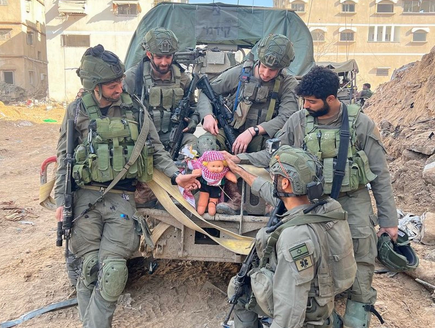
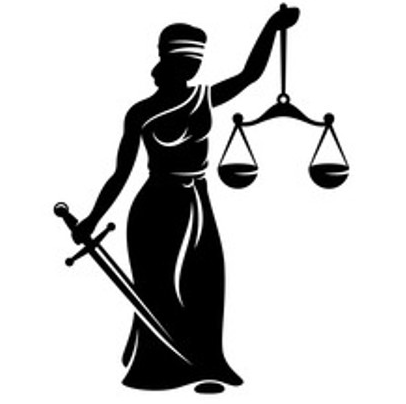
We currently have no clear information about what British nationals serving with the Israel Defence Forces (IDF) in Gaza have been involved in, nor any public assessment of whether they are safe to be walking the streets of the UK after potentially participating in highly violent and unlawful actions. The absence of any police investigation or official scrutiny raises serious concerns about accountability, public safety, and justice. Below is a template letter for readers who wish to call on UK authorities to urgently investigate these matters. If you are concerned about this you can issue a formal request to your local police authority. Below are the details on how you can do this.
Cover Letter for Submission of Formal Complaint[Your Name]
- [Your Address]
- [City, Postcode]
- [Email Address]
- [Phone Number]
- Date: [Insert Date] To:The Chief Constable
- [Name of Relevant Police Force or National Crime Agency]
- [Address]
- [City, Postcode]
- Subject:
- Submission of Formal Complaint Requesting Investigation into British Nationals Serving with the Israel Defence Forces (IDF) Dear Sir/Madam, Please find enclosed a formal complaint/request for investigation concerning British nationals who have served with the Israel Defence Forces (IDF), particularly during military operations in Gaza. This matter raises significant concerns regarding potential violations of UK and international law, including involvement in alleged war crimes. I respectfully ask that you give this complaint your urgent attention and inform me of the steps your office will take in response. Should you require any further information or clarification, please do not hesitate to contact me via the details above. Thank you for your consideration.
- Yours faithfully,
- [Your Name]
How to Submit
By Post:
Print the cover letter and complaint letter on clean, professional letterhead or plain white paper. Use a typed format for clarity. Send via recorded delivery or another traceable postal service to ensure receipt.
Online:
Check the relevant police force or National Crime Agency website for a formal complaints or public reporting section. Upload both letters as PDFs or Word documents if possible. Keep copies of all correspondence and confirmation receipts.
By Email:
Attach the cover letter and complaint letter as PDF files. Use a clear subject line such as “Formal Complaint Requesting Investigation – British Nationals Serving in IDF”. Send to the official contact email for complaints or investigations (often available on the police or agency website).
A bit of shameless self-plugging here. This is www.TetleysTLDR.com blog. It's not monitised. Please feel feel to go and look at the previous ones on the website and if you like them, please feel free to share them.

